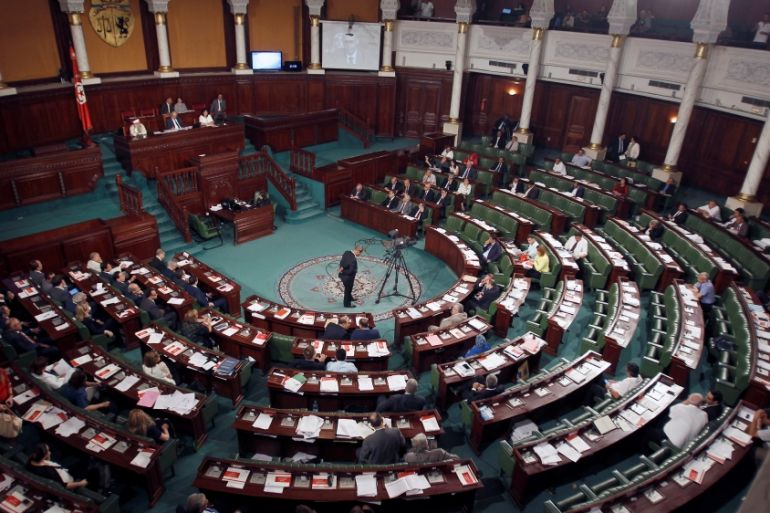Outcry as Tunisian president proposes relative for PM
Critics accuse Tunisia’s Beji Caid Essebsi of nepotism as he promotes a relative for the premiership.

Tunisia’s President Beji Caid Essebsi has proposed a junior minister who is a family member as his candidate to replace sacked Prime Minister Habib Essid, drawing accusations of nepotism from the opposition.
During negotiations over the new government on Tuesday, Essebsi put forward Youssef Chahed, a senior official in the ruling Nidaa Tounes party and the minister for local affairs in the outgoing government, according to Issam Chebbi, a party official.
Chebbi said negotiations will continue on Wednesday in the Carthage-based presidential palace, where parties will give their responses about the proposal. Essebsi has until August 10 to name a new prime minister.
|
|
Opponents said on Tuesday they would protest against the choice of Chahed, while critics on social media used the hashtag “keep your relatives at home” in Arabic to express their opposition to his appointment.
Local media and sources close to his party said Chahed is the nephew of Essebsi’s son-in-law.
“Essebsi got rid of Essid so he could put in place someone close to him and have them follow orders,” said Jilani Hammami, with the opposition Popular Front party. “This is a step back to when one family ran everything.”
Aymen Abderrahmen, a Tunis-based activist, said there was a “growing feeling of disappointment” among Tunisians who supported the president, as well as those who opposed him.
“This is the same president that was the prime minister a few years ago and promised retirement from politics when he stepped down,” he told Al Jazeera.
Tunisian politicians voted on Saturday to dismiss Essid in a no-confidence ballot, clearing the way for a new government of unity that Essebsi wants to push through delayed economic reforms.
READ MORE: Tunisia – ‘Nobody can perform the miracles we need’
The president is already facing widespread criticism from the opponents over what some see as his attempt at a hereditary transfer of power to his son Hafed, the new leader of Nidaa Tounes. That caused a split within the party.
Allies of Essebsi dismiss claims they are looking to place his son into a position of influence.

Since its 2011 revolution to oust Zine El Abidine Ben Ali, Tunisia has emerged as a democracy praised as a model for the region. But armed attacks have tested the government and political infighting has slowed economic progress.
Essebsi has said the country needs a more dynamic government ready to take strong decisions to bring about the liberalisation and cost-cutting required for an overhaul of the North African state’s economy.
Three deadly attacks last year – including gun attacks on foreign visitors at a museum and a beach resort – have badly damaged the tourism industry, which makes up around 8 percent of the economy and is a major source of jobs.
|
|